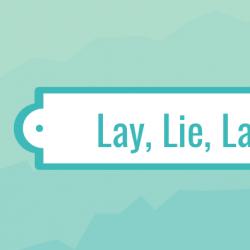Cool blogs in English to broaden your horizons. Blog for English Learners English Learner Bloggers
But also with the help of popular blogs. Let us immediately note that below we will not present blogs of authors, but million-dollar blogs, on which thousands of people work.
- Let's start, perhaps, with The Huffington Post. The history of political blogging can be divided into two periods: before the existence of The Huffington Post and after it. Before socialite Arianna Huffington decided to join the lucrative business, hundreds of bloggers acted in a spirit of underdog solidarity. They hated the media, and the feeling was mutual. In 2005, Arianna decided to take luck and patience into her fist and create a liberal blog. The Huffington Post team includes more than 9,000 bloggers, celebrities and politicians. The site is visited by an average of 110 million readers every month.
- The second most popular is Tmz- a news blog for everyone who likes to spy on famous people, which debuted in November 2005. The name comes from the Thirty-mile zone - an area of super concentration of popular actors, musicians and professional celebrities, the center of which is located at the intersection of West Beverly Boulevard and North La Cienega Boulevard in Los Angeles. This publication has the latest information about the lives of stars: everything about novels, selling property, having children, vacations, as well as photos and videos of celebrities from nosy, unceremonious paparazzi. The monthly number of visitors reaches 30 million.
- For those who cannot imagine their life without reports from the fields of world business, we recommend that you get acquainted with Business Insider. The most current global news, as well as everything about American life. The latest tips on what watch to wear in spring and summer 2016, what restaurants you should visit, how to start your own business and much more. The number of visitors exceeds 25 million every month.
- An equally popular online publication has become Lifehacker, where you can find advice for every taste. Daily tips on how to increase your productivity, save time and become smarter, as well as use modern technologies with the greatest efficiency. Every month Lifehacker is visited by an average of 23 million people.
- For technology lovers, we recommend checking out blogs Gizmondo And Techcrunch. Here you will learn about the latest innovations in smartphones, the highest paid professions, breakthroughs in science that will be possible in the near future with the help of modern gadgets, and the changes that are coming to everyday life in the next decade.
- If you can call yourself a bookworm, love wise sayings, are accustomed to reflecting on the books you read, and, in principle, consider books to be a source of truth, go read immediately Brain Pickings, which began as an author’s blog, but over 10 years has turned into an immense portal about modern culture and an inexhaustible source of information for those who seek to “read” reality.
For those who are no longer interested in gnawing on the granite of science with the help of textbooks, such sites will help not only overcome the language barrier, but also break stereotypes that learning a foreign language is difficult. Of course, no one says that English is easy. But, with effort and striving to achieve your goal, you can fulfill your dreams by “absorbing” modern interesting information that reveals a completely different worldview with the help of English-language blogs. Among other things, you will be aware of everyone
To master academic disciplines, you no longer need to attend a student classroom. You can also study English on your own or via Skype with a teacher. The hosts of specialized channels on YouTube will help you master the language and improve your knowledge. Hello Blogger has made a selection of the best Russian video bloggers and native speakers who will teach American and British English. Watch these videos and you will already learn a lot of new things.
Russian video bloggers
Skyeng
Subscribers. 416 thousand
How he teaches. The blog is run by the emotional and cheerful Tanya Starikova. Gives practical advice on learning the language, analyzes videos of current events, music and cinema. The only negative is a lot of advertising for English language schools.
Justin
Subscribers. 381 thousand
How he teaches. The channel's host, Justin, studies Russian himself, talks about his native English and shares his opinion about Russian traditions and their differences from Western ones.
Anastasia Kay
Subscribers. 358 thousand
How he teaches. Nastya from Belarus studies cognitive science in Vienna and shares her knowledge about how the brain works. It also tells you how to learn English more effectively.
Marina Mogilko
Subscribers. 355 thousand
How he teaches. Marina lives in California and talks about how to study abroad, master foreign languages, build your business and achieve your goals. Hello Blogger recently interviewed her about her work and life.
English Show
Subscribers. 237 thousand
How he teaches. The creators of the channel oppose the traditional education system and try to make learning English simple and enjoyable. The lessons are made with humor, which improves the perception of the material.
Puzzle English
Subscribers. 118 thousand
How he teaches. Various presenters, mostly girls, teach lessons on narrow linguistic topics. The video description usually indicates the difficulty level of the material.
Jobs School
Subscribers. 105 thousand
How he teaches. Presenter Doston records video lessons from various places, from a cafe to a surf club. The explanations are accompanied by a large number of examples. Minus: bad sound.
LinguaTrip TV
Subscribers. 83 thousand
How he teaches. The presenters make videos on current topics, such as how to understand the slang of rap artists, and are very fond of lists.
Foreigners and native speakers
Learn English with Let's Talk
Subscribers. 2.2 million
How he teaches. The channel's hosts are teachers from India. They speak with funny accents and make 10-minute videos on how to use English in different situations. For example, when to say “no” or sound confident.
EnglishLessons4U
Subscribers. 2 million
How he teaches. American Ronnie teaches pronunciation, grammar and correct writing in a funny and emotional way.
Subscribers. 1.5 million
How he teaches. An experienced teacher, Emma stands at the blackboard, writes on it with a marker and explains complex topics clearly.
Rachel's English
Subscribers. 1.3 million
How he teaches. Presenter Rachel teaches correct pronunciation. All videos are provided with subtitles.
Learn English with EnglishClass101.com
Subscribers. 1 million
How he teaches. Various teachers from the USA teach how to use established expressions correctly and use language in different situations, for example when talking about music and cinema.
VOA Learning English
Subscribers. 602 thousand
How he teaches. The channel uploads videos from American television news broadcasts, but with subtitles and the sound slowed down twice. Educational and useful for broadening your horizons.
Learn English with Alex
Subscribers. 505 thousand
Learn English with Steve Ford
Subscribers. 238 thousand
How he teaches. Canadian Steve Ford teaches English from the very basics to subtleties that are useful for any level of knowledge.
Fluency mc
Subscribers. 96 thousand
How he teaches. An American living in Paris teaches English through rap and uses students and teachers from different schools in his videos.
Native speakers from Britain
BBC Learning English
Subscribers. 1 million
How he teaches. The British media corporation BBC publishes videos every weekday according to a clear schedule: on Monday - for exam preparation, on Tuesday - on the language of news reporters, on Wednesday - on pronunciation and new words, on Thursday - for teachers, Friday - with answers to questions from subscribers.
Anglo-Link
Subscribers. 992 thousand
How he teaches. The British Minu films lessons in “pure” British English and provides her words with a large number of examples.
Speak English With Misterduncan
Subscribers. 626 thousand
This post is intended for all those who are not native English speakers.
As you can tell from the title (and subtitle) of this post, English is not my native language, so writing in English is not an easy task for me. After eight and a half years of blogging - mainly my personal blog and unadocenade.com - I decided to open myself to new opportunities, new communities and new tools.
As I said before, writing in a non-native language means putting in extra effort. I more or less understand what I want to write about, but I don't want to sound too one-sided or too vague, so I have to do more research, and, of course, spend more time thinking about everything from a different perspective, different from the way I usually think in Spanish, so that I could convey exactly what I wanted.
In any case, writing in English is a wonderful experience and I recommend everyone to do it.
Are you practicing your English?
As with any skill in life, the more you practice, the better you will become at it. You learn new words, learn different ways of constructing sentences... You, to some extent, may even find your own voice in another language!
You expand your vocabulary
No. This is not a repetition of the first point. Practicing a language is one thing (and that certainly includes learning anything new), but it's another thing to have a notepad handy while you type to write down new words, or new meanings of words you already know, or new ones. idioms, or new grammatical constructions.
You structure your thoughts differently
Before you can write in another language, you need to learn to think in that language, and when this happens, you realize that the thoughts that come into your head are structured completely differently than they would be in your native language. It's like having another person's point of view but being yourself. This is an indescribable feeling.
You increase your readership
In my case, when I write in Spanish, I can reach an audience of 222 million people. Using English opens up an audience of 800 million people to me. Enough said.
You meet new people
A new audience means new connections: using English broadens your horizons, increases your social circle almost instantly, and opens up access to readers from all over the world.
Remember how you started making new friends thanks to a blog in your native language? It will happen again.
You read more (including in English)
When you need to find information on a topic or want to see examples of the use of certain grammatical structures, you have to look it up and then read it. You will read a lot and, of course, in English too! The hyperlinks you use to supplement your posts will also be primarily in English (with some exceptions).
It will help your career
Until now, only those you work with know that you can speak and write in English (if, of course, you use English at work). When you create a blog, everyone will know what you can do. And, at the same time, you make your professional profile international.
Not just for the sake of the language itself
If you write a professional blog, you can also improve your resume. You build an online portfolio, post by post, by writing in a non-native language. If you previously included a blog on your resume, now it will bring you double benefit.
You become interested in various topics
When you write a blog in English, you have to read in English and think in English - there is a natural evolution in your writing. And what's more, you have to think globally, not just locally. Or, if you need to raise any regional issue, then you will have to do it in a way that everyone can understand. This will certainly make you interested in topics different from those that cared about you before.
What about duplicate content?
Indeed! This isn't a requirement if you don't feel like doing it, but blogging in two languages can be a good option. In my case, I usually don't duplicate content. Each of my blogs has its own purpose, its own audience, its own community.
You yourself become better
This always happens as soon as you open yourself to something new. When you think globally, think in a different language, when you structure your thoughts in a different way, you become a better version of yourself.
Starting from scratch (again) is fun
It's fun to start a new project from scratch when you've already been involved in thousands of projects before. Because everything is already familiar and unknown at the same time.
Now name your reasons why you write in English.
Cats have inhabited folklore since time immemorial, they appear in fairy tales, myths, riddles and, of course, idioms. Today we will look at idioms about cats in English. Read also: “10 idioms about birds in English.” 1. Curiosity killed the cat The meaning of the idiom...

Similar English words lay, lie, laid, lied still sometimes cause me difficulty, so I decided to write this article about them. Personally, while I was writing, I finally understood these verbs, I hope you will understand them too To lie –...

Dear readers, and now viewers! I started a YouTube channel for English language learners and this is my first video. In it, I talk in great detail about how I learned about 3,000 English words when I first started learning English….

Today we will look at a seemingly simple word enough, which you probably know. There is a slight difficulty associated with it: enough sometimes comes before the word being defined (enough time), and sometimes after (hard enough). Enough before a noun When combined with a noun the order...

When people talk about learning English on YouTube, they usually list a list of channels with lessons. I want to talk not about specific channels, although I will still give a few as examples, but about how in general you can use YouTube to learn English. 1….

The word “instead” has two simple but important features. They are connected with the fact that instead can be used as a preposition “instead of”, or maybe as an adverb - in a way uncharacteristic for the Russian language. Now I will explain more clearly. Instead of - instead of something,...

2019-05-18 // 0 Comments
As you know, in English one of the most productive ways of forming new words is by adding a suffix to the base of the word. Certain English suffixes are used only with certain parts of speech, for example, the suffix -ly is inherent in adverbs, -tion -
2019-05-12 // 0 Comments
There are several idioms in the English language with the word “head”, they are quite simple and useful for daily communication, so we decided that it would be a good idea for you to supplement your vocabulary with them. 1. Keep one’s head - The one who uses this expression wants to emphasize
2019-05-05 // 2 Comments
In our article on conditional sentences, we looked at 3 types: Type I – real condition, correlated with the future tense Type II – semi-real condition, correlated with the present or future tense Type III – unreal condition, correlated with the past tense. But there is also
2019-04-16 // 1 Comment
We invite you to take a summary test at the intermediate level for repetition of tenses. The test has 10 questions, you need to choose the correct option from three or four. If you answer all the questions, you will be able to find out your result. To do this, click on the “Show result” button.
2019-04-10 // 0 Comments
Scotland is a country to the north of England. This is the birthplace of Walter Scott and ROBERT Burns, bagpipes, Scotch whiskey, men in kilts, Nessie - the monster from Loch Ness. Its symbol is the thistle, its patron saint is Saint Andrew the First-Called, therefore
2019-03-12 // 0 Comments
Everyone loves the sun and sunny weather, because then you can walk and play outside. But sometimes clouds come into the sky, and the rain ruins all the fun. England is a country of rain, so there are many songs dedicated to the rain. Let's get to know some of them. Rain, rain, go away This is
2019-03-01 // 0 Comments
We continue to test our knowledge of British culture and history. The test includes questions on general erudition. We hope. you are familiar with such names as Christopher Wren, Alexander Bell, Francis Drake, Charlotte Bronte and you know what Stonehenge and Greenwich are. In that case you
2019-02-24 // 1 Comment
The English intensifying adverbs quite and rather are synonyms and mean “quite, to some extent,” but there are still some differences in their use. Let's look at this topic in more detail. Quite The adverb quite stands in meaning between “a little” and “very”. Our holiday was Ok. We had quite






